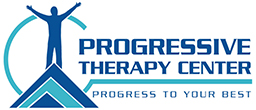
People often struggle with rotator cuff problems. No part of your body spends as much time twisting at as many angles as your shoulder. If you are in a position where rotator cuff problems are common, going to therapy for rotator cuff repair in Coconut Grove is vital to the healing process.
What is the Rotator Cuff?
A rotator cuff is a group of muscles and tendons around the shoulder. These tendons and muscles keep your shoulder in joint and enable the flexibility of movement that we need in everyday life. The socket of the shoulder is remarkably shallow compared with the sockets for other joints in the body, due to the range of motion it has. Because of this, a functional rotator cuff is essential for everyday life.
Injuries to the rotator cuff happen when people do a lot of repeated overhead movements. This is usually due to something required for a job, like warehouse work, painters, or tennis players. They become more likely as a person grows older, and the pattern of repetitive motion wears more and more on that set of muscles and tendons.
What are the Symptoms?
If you are in one of those high-risk professions, then keeping an eye out for the symptoms of rotator cuff injuries is important. Here are a few of the symptoms.
- An ache deep in your shoulder. It usually isn’t a sharp, stabbing, or burning pain, but more of a dull pain.
- Problems sleeping due to pain in the shoulder. This is especially bad when sleeping on the side with that particular shoulder.
- Limited movement. It might become more and more challenging to do the motion that created the injury, even when it is for smaller things, like reaching up to grab something from a cabinet or brushing your hair.
- Weakness. If you are finding that your arm and shoulder can’t support the weight of objects anymore, you might have a problem with your rotator cuff.
What Can I Do About It?
 So you have determined that you might have a rotator cuff issue. Once you begin experiencing that kind of pain, your first step should always be to go to the doctor. A doctor will properly be able to diagnose your issue. They will conduct a few tests, usually testing your range of motion and pressing certain areas to see if they hurt.
So you have determined that you might have a rotator cuff issue. Once you begin experiencing that kind of pain, your first step should always be to go to the doctor. A doctor will properly be able to diagnose your issue. They will conduct a few tests, usually testing your range of motion and pressing certain areas to see if they hurt.
If the doctor still isn’t sure, they will order more tests. These tests can include X-rays, MRI’s, and even ultrasounds. Tests like this will give the doctor a visual image of the bones, muscles, and tendons to inspect. They will look for visible tears or other symptoms of rotator cuff injuries.
Once you have your diagnosis, you only have a few options. This condition usually doesn’t require surgery unless it was caused by one acute incident. For example, if you tore your rotator cuff at a game of football by landing on your arm the wrong way. Most of the time, though, it is treated with therapy for rotator cuff repair in Coconut Grove until the tear heals on its own.
What is Therapy for Rotator Cuff Repair in Coconut Grove?
At first, the initial treatment for rotator cuff repair is rest, ice, and elevation. Making sure that the swelling goes down is a priority, as a patient usually can’t begin physical therapy until there is a bit of healing, usually at least a week. Here are a few of the techniques that physical therapists use to treat rotator cuffs.
- Static exercise. This exercise consists of placing one hand against a stationary object, and under the supervision of a physical therapist, pressing against that object.
- Crossover arm stretch. To do this, the patient relaxes their shoulders and pulls one arm across their chest
- Pendulum exercise. This one is a little difficult to describe, but the patient should steady themselves with the uninjured arm on a stationary surface, then slowly swing their hand in a circular motion in front of them. This exercise is to help increase the range of movement.
- Standing rows. This particular exercise helps to strengthen the injured muscles and involves the use of a stretch band and a hook. Once you have attached the band, you hold it in your hand and bend your arm at the elbow, then unbend it and repeat the motion at the discretion of your physical therapist.
Many other exercises are useful for rotator cuff repair as well, but a professional physical therapist should oversee all of these exercises. Here at Progressive Therapy Center, our physical therapists are ready and willing to help you on your journey of healing. Contact us to get started today!
